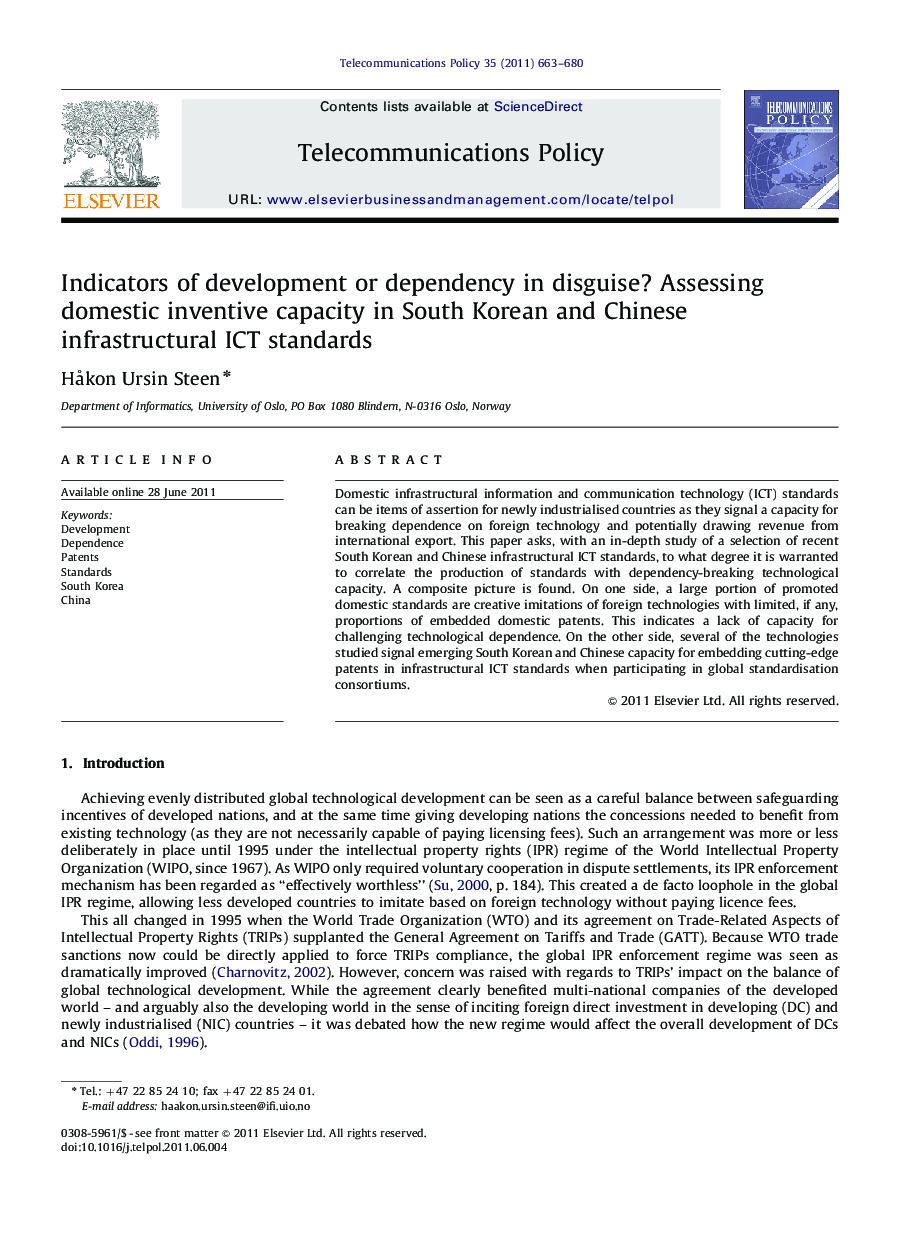| Article ID | Journal | Published Year | Pages | File Type |
|---|---|---|---|---|
| 557019 | Telecommunications Policy | 2011 | 18 Pages |
Domestic infrastructural information and communication technology (ICT) standards can be items of assertion for newly industrialised countries as they signal a capacity for breaking dependence on foreign technology and potentially drawing revenue from international export. This paper asks, with an in-depth study of a selection of recent South Korean and Chinese infrastructural ICT standards, to what degree it is warranted to correlate the production of standards with dependency-breaking technological capacity. A composite picture is found. On one side, a large portion of promoted domestic standards are creative imitations of foreign technologies with limited, if any, proportions of embedded domestic patents. This indicates a lack of capacity for challenging technological dependence. On the other side, several of the technologies studied signal emerging South Korean and Chinese capacity for embedding cutting-edge patents in infrastructural ICT standards when participating in global standardisation consortiums.
► Standards and patents not sufficient measure of technological capacity of nations. ► Domestic standards dependent on large amounts of foreign patents. ► Technological dependence best challenged in global standardisation consortiums.
